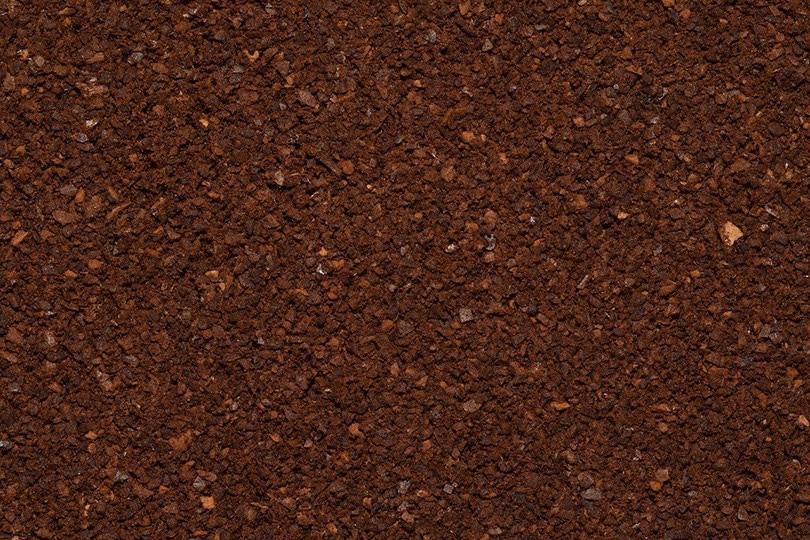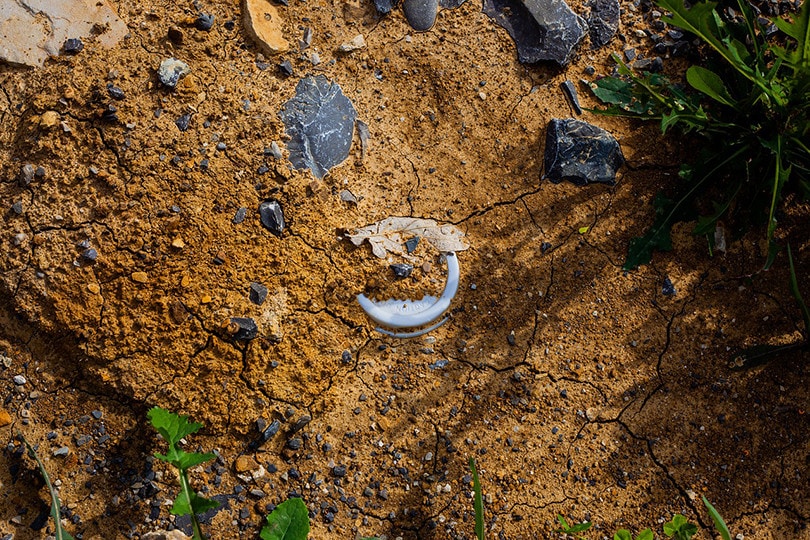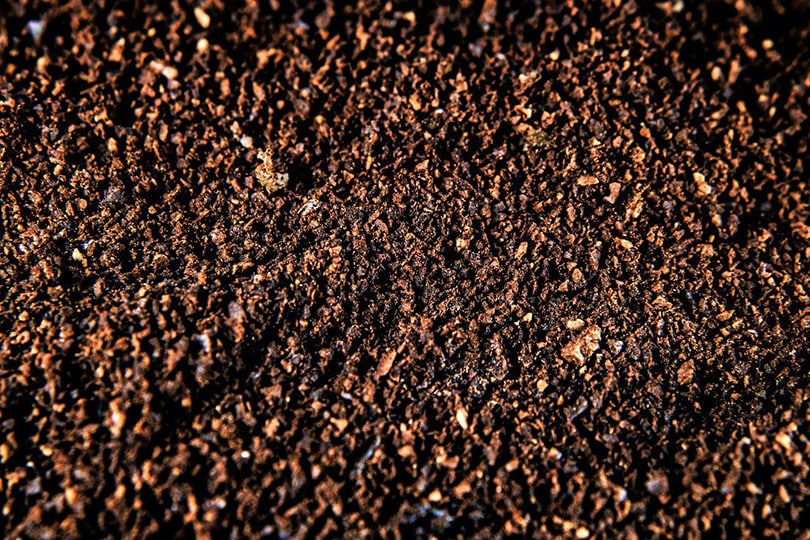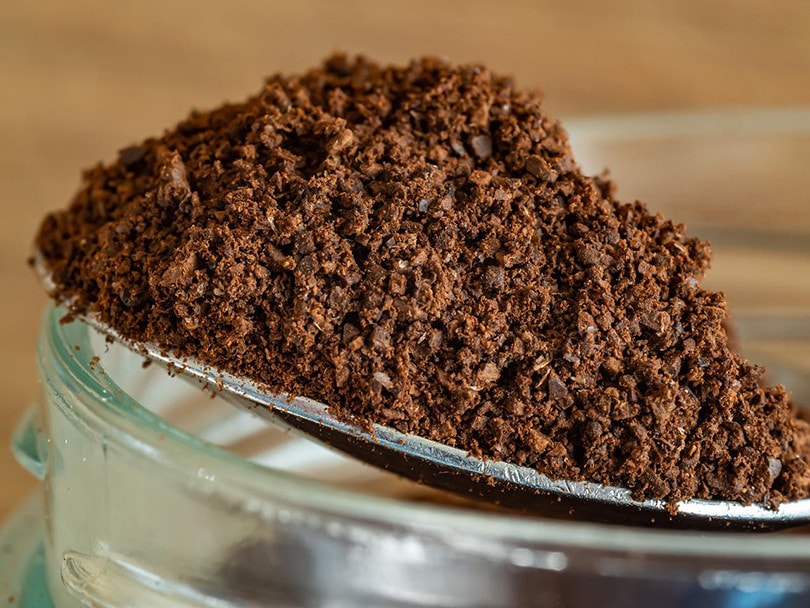Can You Compost Coffee Grounds? What You Need To Know
-
Kristin Hitchcock
- Last updated:

You can compost coffee grounds in many cases. They work well in practically any composting setup, especially since they tend to maintain their scent for quite a while. Therefore, they are far less likely to become stinky (for a little bit at least).
Furthermore, they are also fairly good for the soil. They provide quite a few nutrients and are well-liked by most plants. Plus, many animals do not like the smell of coffee grounds. Therefore, this works well in a way to keep pests out of your garden. However, fully composted coffee grounds don’t necessarily hold onto that scent.
This doesn’t mean that you should compost coffee grounds in your garden. All over the internet, you’ll find articles stating that coffee grounds are a great option in your garden. Some articles claim that they ward off slugs, lead to healthy soil, or cause your plants to get huge. We even found a suggestion to use coffee as mulch.
Coffee isn’t always a good option, though. Caffeine may be a completely accidental evolutionary step. However, it suppresses the growth of most plants, which is exactly why it helps caffeinated plants grow better. Their leaves literally poison the soil. Studies have found that caffeine suppresses plants in an urban environment a lot.
A lot of caffeine can be left in the coffee beans after you use them, depending on the brewing method. Therefore, you may want to refrain from using them throughout your garden.
One way that they are extremely useful is as a weed killer. Because coffee grounds are actually poisonous to many plants, they can be used to prevent the germination of weeds. If you’re interested in eliminating some weeds, sprinkling them with coffee grounds may kill them and prevent more weeds from growing.
Are Coffee Grounds Acidic?
One reason that you often hear to not use coffee grounds is that they are acidic. However, this isn’t actually true. The acid in coffee grounds is water-soluble. Therefore, much of the acid is in the coffee that you drink. It won’t actually be in the coffee grounds as long as you have used them.
Of course, don’t use unused coffee grounds. These will still be high in acid, which can be bad for some plants.
However, if you’re trying to make your soil more acidic, you may be able to use unused coffee grounds. You do need to keep in mind that there is caffeine in the beans, as we have stated. Therefore, you have to be fairly careful with using too many coffee grounds, or they will kill just about everything.

Can You Have Too Many Coffee Grounds in Compost?
You should not add unlimited coffee grounds to your compost. This will make the compost have too much caffeine and have too much acid. It won’t necessarily be good for all plants and may harm your soil. Instead, you should aim to only use a small number of coffee grounds in your compost.
However, how much is too much really depends on your current soil and what plants you have.
How Long Do Coffee Grounds Take to Decompose?
To completely decompose, coffee grounds take about 3 months. As with other materials, you can make them decompose faster if you mix green and brown materials in your compost pile. You can also keep the compost pile moist. However, it should not be soggy.
Generally speaking, coffee grounds take about the same time to decompose as other materials. You can add them to the soil before they are completely decomposed, though. Many people add them directly to the soil without decomposing them. Therefore, making sure they are completely decomposed before adding them to the soil is not particularly important.
Are Coffee Grounds Good for Plants?
Not particularly. Coffee grounds are somewhat helpful, as they are high in nitrogen. However, they are also caffeinated and somewhat acidic. You need to keep these factors in mind when deciding to use them in your garden or not.
The acid is water-soluble. Therefore, if you utilize used coffee grounds, then you generally don’t have to worry about the acid levels. Most of it will be washed off when you make your coffee. However, they will remain caffeinated no matter what you do. Caffeine is toxic to most plants and may slow their growth.

Are Coffee Grounds Good for Vegetable Gardens?
Caffeine is toxic to most plants, including vegetables. Only other caffeinated plants are not affected by caffeine. Therefore, we highly recommend that you carefully consider using coffee grounds in your garden. In higher amounts, these coffee grounds can affect the growth of your veggies in a negative way. In fact, this is what most studies have found.
You can use them in small amounts, though. They are not so caffeinated after being used, so small amounts are not terribly toxic. However, unused coffee grounds are quite acidic and can bother plants that need more basic soil. Of course, it does depend on the exact plants you have, since some of them do like acidic soil.
What Plants Do Not Like Coffee Grounds?
There are several plants that do not like coffee grounds. Technically, any plant that is not caffeinated itself will find coffee grounds toxic. Therefore, you should use them sparingly. They do make a very good weed killer if you use them in their raw form without composting. However, it is okay for most plants in very small amounts.
However, coffee grounds are not necessarily the best option for most plants. In fact, they tend to be a bit less helpful than other common composting items. If you can avoid it, most gardeners will suggest that you do not use coffee grounds at all—despite what many of the articles on the internet state.

Can You Put Coffee Grounds in Your Garden?
You can put coffee grounds directly into your garden. In fact, they are very good at preventing the germination of weeds. However, you will have to spot-treat with them, since they can stop your plant’s germination as well. You can also use them around the perimeter to keep out some pests and other animals. For instance, cats do not like the smell of coffee grounds, so they can keep them out of your garden.
They can also increase the nitrogen in your soil, which is useful for many plants in your garden. They are considered a “green” material in compost, which means that they are organic. However, you can use too many of them in your compost is not always a good thing.
- Related Read: Can You Compost Bread? What You Need To Know!
In Conclusion
Coffee grounds have much praise on the internet. They are often claimed to do all sorts of things, including growing very big plants and keeping a variety of pests away. While they do this sometimes, they are also naturally toxic to most plants.
Caffeine is toxic to many plants—except those that are caffeinated. Caffeine is a natural toxin, but it helps caffeinated plants grow since it kills all of the plants around them. Therefore, we highly recommend that you be cautious about using coffee grounds in your compost.
Featured Image Credit: ulleo, Pixabay
Contents
